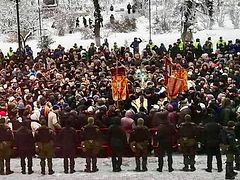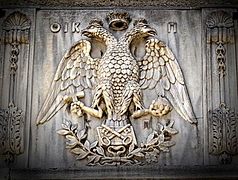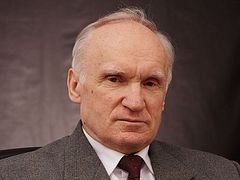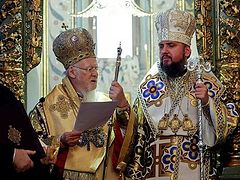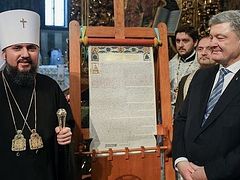The Ecumenical Patriarch's actions in Ukraine have prompted calls for a Synaxis. Patriarch Bartholomew's refusal to convene one has prompted some to suggest suspension, hopefully temporary, of communion with the CP, and an appeal to Alexandria, the next in line, to convene the meeting. There is hesitation, based on concern for unity. In response, many are beginning to ask…
What is the price of unity?
Concerns about suspending communion, even temporarily and for a constructive purpose, are well-founded. St. John Chrysostom himself tells us, “Nothing so provokes God's anger as the division of the Church.” Immediately before that, however, he clarifies who the dividers are: “Nothing will so avail to divide the Church as love of power.” 1 The Fathers further make it clear that those who join with schismatics become schismatics themselves.2
A key tactic of the Left is to create division and then to accuse those who object of “divisiveness.” The tactic began to be employed against ecclesiastical institutions in the 1970’s, and by the 1990’s every one of the hitherto strong moral and doctrinal positions of the “mainline churches” had been overthrown. The new “Religious Left,” gaining control of the seminaries and denominational institutions, silenced their opposition—even their highest-ranking opposition—by invoking “church unity.” They then leveraged their positions to impose their agendas through the sheer exercise of power.
Now similar guns are aimed at us.
Again, St. John Chrysostom, from the same homily:
Yea, though we have achieved ten thousand glorious acts, yet shall we, if we cut to pieces the fullness of the Church, suffer punishment no less sore than they who mangled His body.
The Local Churches’ response to the CP’s schismatics has been uncompromising:
Archbishop Theodosius of Boyarka fears a split into Orthodoxy and “Phanarodoxy;” 2
Antioch’s Patriarch John X admonished, “It is unreasonable to end a schism at the expense of the unity of the Orthodox world,” 3 stressing the need for a Synaxis.
Dr. Alexander Shchipkov, professor of philosophy at Moscow State University, proposes an
“inter-Orthodox ecclesiastical court” to “make judgments about the anti-canonical actions and heretical ideas of Patriarch Bartholomew.” 4
Metropolitan Amfilohije of Montenegro has stated, “Constantinople’s lust for power is catastrophic for Orthodoxy.” 5
Archbishop Jovan of Ohrid has called for a Council.6
Finally, Metropolitan Danil of Vididn, Bulgaria, declined to attend the Ukrainian “Unity Council” by quoting from Psalm 1: “Blessed is the man that hath not walked in the counsel of the ungodly, nor stood in the way of sinners, nor sat in the seat of the pestilent. But his will is rather in the law of the Lord, and on His law will he meditate day and night.” 7
Concerns about “encouraging disunity” appear to be waning: if someone leaves the room, those who point out that he has left are not the ones who have departed;
Calls for a Synaxis are virtually unanimous among the Local Churches. Calls are not actions, however, and so far Bartholomew has simply ignored them. Pragmatically, this makes sense: every day that goes by solidifies his position.
Suspending communion with Constantinople would clear the way for a Synaxis. It’s a step nobody wants to take, but It would seem the time has come to consider the cost of not taking it.
Fr, James is Rector of St. Joseph of Arimathea Orthodox Church and House of Prayer, a Western Rite ministry of the Russian Orthodox Church Outside of Russia. His opinions are his own.



